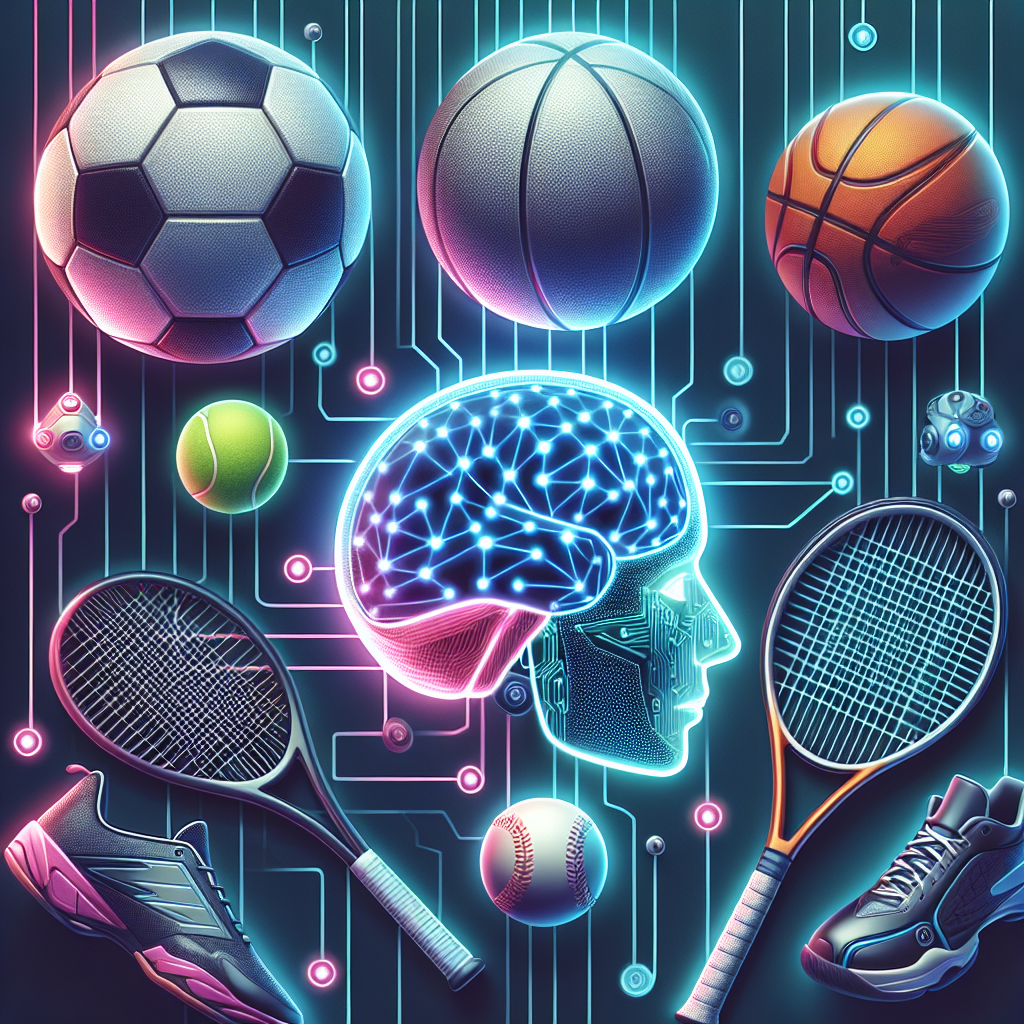Artificial Intelligence (AI) has rapidly expanded its reach into various industries, including sports performance monitoring. From enhancing training techniques to improving player health and safety, AI is revolutionizing the way athletes and teams approach their performance. In this article, we will explore the influence of AI on sports performance monitoring and its potential impact on the future of sports.
AI in Sports Performance Monitoring
AI technologies have the ability to collect, analyze, and interpret vast amounts of data in real-time, providing coaches and athletes with valuable insights into their performance. By utilizing AI algorithms, sports teams can track and measure key performance metrics, such as speed, agility, and power, to identify strengths and weaknesses in individual players and teams.
One of the most significant advantages of AI in sports performance monitoring is its ability to provide personalized training programs tailored to the specific needs of each athlete. By analyzing data from wearable devices and sensors, AI can create customized training regimens that target areas for improvement and optimize performance. This personalized approach allows athletes to maximize their potential and achieve peak performance levels.
Furthermore, AI can also be used to prevent injuries by monitoring biomechanical data and identifying potential risk factors. By analyzing movement patterns and tracking fatigue levels, AI algorithms can alert coaches and trainers to early warning signs of injury, allowing them to implement preventative measures and adjust training programs accordingly.
In addition to enhancing individual performance, AI can also improve team dynamics and strategy. By analyzing player data and performance metrics, coaches can identify trends and patterns that can be used to develop game strategies and tactics. AI can also help teams optimize their lineup and rotations based on player performance and opponent analysis, giving them a competitive edge on the field or court.
Overall, the influence of AI on sports performance monitoring is undeniable, with the potential to revolutionize the way athletes train, compete, and perform.
FAQs
Q: How does AI collect data for sports performance monitoring?
A: AI collects data for sports performance monitoring through a variety of sources, including wearable devices, sensors, cameras, and tracking systems. These devices capture data on key performance metrics, such as speed, distance, heart rate, and acceleration, which is then analyzed and interpreted by AI algorithms to provide valuable insights into an athlete’s performance.
Q: How does AI analyze data for sports performance monitoring?
A: AI analyzes data for sports performance monitoring by using machine learning algorithms to identify patterns, trends, and correlations within the data. These algorithms can detect anomalies, predict outcomes, and provide recommendations based on the data collected. By analyzing vast amounts of data in real-time, AI can generate actionable insights that can be used to improve athlete performance.
Q: What are the benefits of using AI for sports performance monitoring?
A: The benefits of using AI for sports performance monitoring are numerous, including personalized training programs, injury prevention, and improved team dynamics. AI can provide athletes with customized training regimens tailored to their specific needs, helping them maximize their potential and achieve peak performance levels. Additionally, AI can monitor biomechanical data to identify potential risk factors for injuries and implement preventative measures. Finally, AI can help coaches develop game strategies and tactics based on player performance and opponent analysis, giving teams a competitive edge.
Q: How can AI be integrated into sports performance monitoring?
A: AI can be integrated into sports performance monitoring through the use of wearable devices, sensors, and tracking systems that capture data on key performance metrics. This data is then fed into AI algorithms, which analyze and interpret the data to provide valuable insights into an athlete’s performance. Coaches and trainers can use these insights to create personalized training programs, prevent injuries, and optimize team dynamics and strategy.
In conclusion, the influence of AI on sports performance monitoring is transforming the way athletes and teams approach training, competition, and performance. By harnessing the power of AI algorithms, coaches and athletes can access valuable insights that can enhance performance, prevent injuries, and optimize team dynamics. As AI continues to evolve, its impact on sports performance monitoring is only expected to grow, paving the way for a new era of innovation and excellence in sports.

